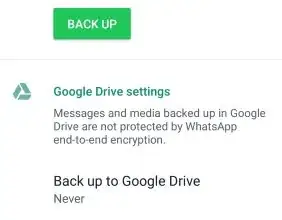WhatsApp has end-to-end encryption, promising privacy to users.
However, it becomes useless if backups to Google Drive are unencrypted. Our supposedly private data goes to the control of Google.
No problem, I can disable the backup. But, what about all the people I talk to? Google still holds most of my conversations, unencrypted.
This seems to be a useless/tricking/lying design, done in purpose to ensure they keep control of the users. (and keep in mind that Whatsapp reminds me MANY times to enable the Backup)
I understand that as soon as I send a message to another person, they can take screenshots, show to other people, etc. I understand that risk. However, not encrypting backups just makes it way easier for the messages to be even more exposed.
Question is - I'm sure WhatsApp could encrypt backups to Google if they wanted (e.g. require a passphrase to users, or at least have that option and recommend users to use it). Why does WhatsApp not do that?
"Messages and media backed up in Google Drive are not protected by WhatsApp end-to-end encryption."
EDIT - This is not a duplicate of Does backing up WhatsApp on Google Drive expose messages?
I'm asking WHY WhatsApp doesn't implement backup encryption. I already know that backing up to Google Drive exposes messages, so it's not the same question.
